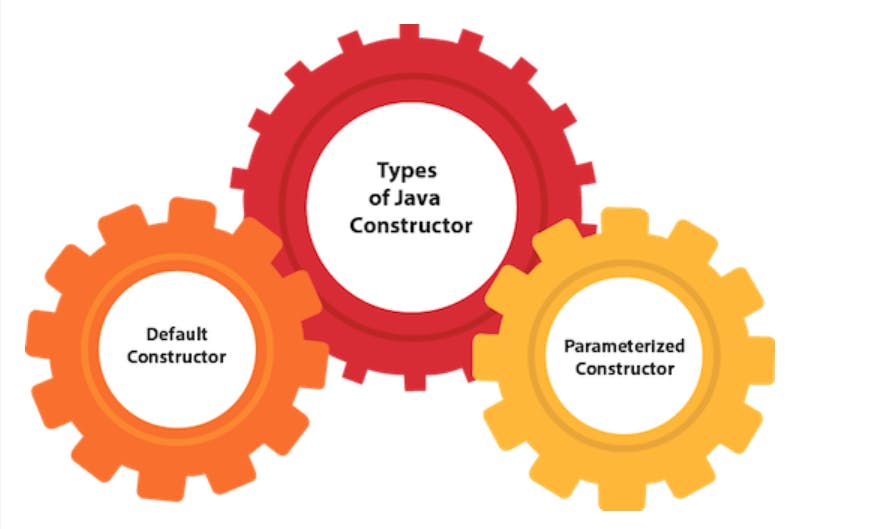Constructors in Java: Building Blocks of Code🚀🔐✨
Discover the Enchanted World Where Java Code Comes to Life! 🌟👾🚀
Table of contents
- Introduction
- 1. Constructors: The Blueprint of Objects
- What is a Constructor?
- 2. Rules of the Constructor Kingdom:
- 3. Need of Constructors in Java
- 4. When Java Constructor is called?
- 5. Types of Constructors in Java
- 1. Default Constructor in Java
- Output
- 2. Parameterized Constructor in Java
- Output
- 6. Advantages We Uncovered:
- 7. Potential Considerations:
- Conclusion: Constructors Explored
- #CodeMagicLaughs
- Happy coding! 🚀
Introduction
Greetings, Java enthusiasts! Today, we're unraveling the mysteries of constructors, the dynamic duos that lay the foundation of any Java project. Buckle up for a journey into the realm of object-oriented programming, where these building blocks become the architects of software wonders.
#CodeMagicLaughs👨💻🚀
1. Constructors: The Blueprint of Objects
What is a Constructor?
Constructor is a block of codes similar to the method. It is called when an instance of the class is created. When calling the constructor, memory for the object is allocated in the memory. It is a special type of method that is used to initialize the object. Every time an object is created using the new() keyword, at least one constructor is called.
// Driver Class
class Technikio {
// Constructor
public Technikio()
{
super();
System.out.println("Constructor Called");
}
// main function
public static void main(String[] args)
{
Technikio nikio = new Technikio();
}
}
Now let us come up with the syntax for the constructor being invoked at the time of object or instance creation.
The first line of a constructor is a call to super() or this(), (a call to a constructor of a super-class or an overloaded constructor)
if you don’t type in the call to super in your constructor the compiler will provide you with a non-argument call to super at the first line of your code, the super constructor must be called to create an object
If you think your class is not a subclass it actually is, every class in Java is the subclass of a class object even if you don’t say extends object in your class definition.
2. Rules of the Constructor Kingdom:
Same Name as the Class: The constructor must share its name with the class it belongs to. It's like giving your house the same name as your family.
No Return Type: Constructors don't have a return type, unlike methods. They're selfless creators, focused on the joy of bringing objects to life.
Multiple Constructors (Overloading): You can have multiple constructors in a class with different parameters. It's like having various doorways to enter your coding castle.
3. Need of Constructors in Java
Constructors aren't just Java's version of a welcome party for objects. They play a crucial role in setting the initial state of objects, ensuring they're ready for action when called upon in a project.
In Projects:
Object Initialization: Constructors ensure that objects are properly initialized with default or specific values.
Code Organization: They contribute to cleaner and more organized code by centralizing the initialization process.
4. When Java Constructor is called?
Each time an object is created using a new() keyword, at least one constructor (it could be the default constructor) is invoked to assign initial values to the data members of the same class. Rules for writing constructors are as follows:
The constructor(s) of a class must have the same name as the class name in which it resides.
A constructor in Java can not be abstract, final, static, or Synchronized.
Access modifiers can be used in constructor declaration to control its access i.e. which other class can call the constructor.
5. Types of Constructors in Java
Now is the correct time to discuss the types of constructors, so primarily there are three types of constructors in Java are mentioned below:
Default Constructor
Parameterized Constructor

1. Default Constructor in Java
A constructor that has no parameters is known as default the constructor.
A default constructor is invisible. And if we write a constructor with no arguments, the compiler does not create a default constructor.
It is taken out. It is being overloaded and called a parameterized constructor.
The default constructor changed into the parameterized constructor. But the Parameterized constructor can’t change the default constructor.
class Technikio {
// Default Constructor
public Technikio()
{
System.out.println("Default constructor");
}
public static void main(String[] args)
{
Technikio nikio = new Technikio();
}
}
Output
Default constructor
Default constructor provides the default values to the object like 0, null, etc. depending on the type.
2. Parameterized Constructor in Java
A constructor that has parameters is known as a parameterized constructor. If we want to initialize fields of the class with our values, then use a parameterized constructor.
// Java Program for Parameterized Constructor
import java.io.*;
class nikio {
// data members of the class.
String name;
int id;
public Technikio(String name, int id)
{
this.name = name;
this.id = id;
}
}
class Technikio {
public static void main(String[] args)
{
// This would invoke the parameterized constructor.
nikio nik1 = new nikio("Technikio", 11);
System.out.println("TechName :" + nik1.name
+ " and TechId :" + nik1.id);
}
}
Output
TechName :Technikio and TechId :11
6. Advantages We Uncovered:
Constructors proved to be architects of clarity, enhancing the readability of our code and acting as guiding lights for developers.
Their knack for initialization magic ensures that our objects step onto the coding stage well-prepared and ready to shine.
7. Potential Considerations:
- While constructors are powerful allies, we acknowledged the need for careful management, especially when dealing with multiple constructors that could introduce complexity.
Conclusion: Constructors Explored
In our journey through Java constructors, we've witnessed these magical creators bringing objects to life. Adhering to naming conventions and avoiding return types, constructors enhance clarity and prepare objects for their coding adventure. As we conclude this chapter, stay tuned for our next adventure —> exploring the dynamic heroes of code and the methods in Java! 💻🚀

